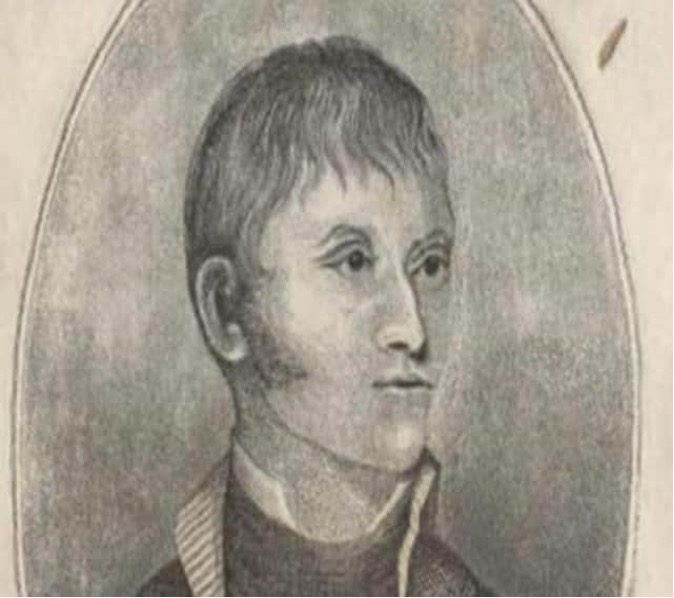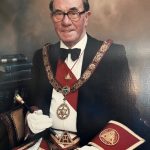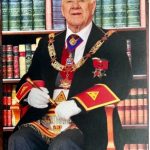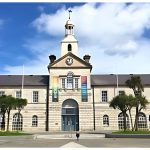
The Masonic Order in the Ards Peninsula has had many notable members throughout its history. One such member was Andrew McKenzie (1780-1839), a poet and songwriter known as the “Bard of Dunover.” Dunover is a townland in the parish of Ballywalter, located between Ballywalter and Greyabbey. McKenzie worked as a weaver before becoming recognized for his poems and songs, which have been compared to those of Robbie Burns. He also wrote under the pen-name Philip McClabber.
In 1810, McKenzie’s book “Poems and Songs on Different Subjects” was published and later serialized in the Belfast Newsletter. Writing in the Ards Peninsula dialect, he is considered one of the first published Ulster Scots poets. On February 2, 1810, he joined the Greenhill Masonic Lodge and was so inspired by his initiation that he commemorated it in music and verse.
Greenhill Masonic Lodge No.985, was established in 1810 and met in the Lodge Room at Green Hill Farm, Drumawhey, between Donaghadee and Newtownards. In 1816 the Lodge moved to Newtownards and changed its warrant and name to Union Star Masonic Lodge No.198.
The following is an extract from “Poems and Songs on Different Subjects” by Andrew McKenzie.
Green-Hill
Written on being initiated a member of the
Green Hill Lodge No.985
2nd February 1810
Tune – “Lochaber no more”
Enveloped in darkness, forlorn and astray.A poor lonely wanderer enquiring my way,
My spirits were lost in the horrors of night, And vainly I wished for the morning’s fair light.
But Providence designed for my wants to provide, When fairly bewildered, I met with a guide.
Who gave me his hand with purist good-will, And safely conducted me to the Green Hill.
Arrived in that temple of Friendship and Love, The words of instruction, I heard from above.
Three lights the most glorious threw splendour around, And showed me no falsehood was there to be found.
What bosom so cold but must glow with delight, To see all the brethren in friendship unite.
All striving their Master’s great plan to fulfil, They joyfully Labour upon the Green Hill.
Let none to this temple of friendship repair, But those who in dealing with men will be square,
May virtue’s strict compass our actions confine, In bounds of true masonry’s precepts define.
The Level shall teach us no rank to despise, The beggar’s our brother, if upright and wise.
And oh I till the hour-glass of time shall stand still, May Peace, Love and Harmony crown the Green Hill.
McKenzie’s life changed after publishing his first book, which he financed by selling subscriptions in exchange for patrons’ names listed in the preface. He earned £200, bought a house, and a fishing boat that was later wrecked, nearly drowning him. He moved to Belfast with his family.
His second book, The Masonic Chaplet with a few other poems, published in 1832, included songs and poems inspired by visits to many masonic lodges.
After the death of his son, Mckenzie was employed as a Tallyman on the River Lagan, he was responsible for recording the freight ships as they made their way to the port of Belfast.
Alexander McKenzie fell ill and died on the 10th May 1839 aged 59. He was buried in the Shankill Graveyard, Belfast by William McComb, of High Street, who wrote the following epitaph:
‘Here lies beneath this little mound of earth,
A child of genius and a man of worth.
The winds of heaven awoke his rustic lyre,
And tuneful nature breathed from every wire.
The world approved his song, but help denied.
He lived unaided, and neglected died.’



